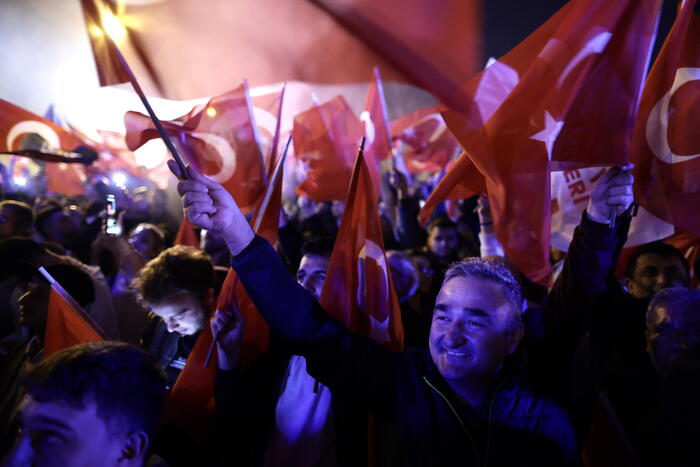Jean-Baptiste Leon is director of publications for Contribuables Associés.
To discover
Michel Houellebecq: "A civilization which legalizes euthanasia loses all rights to respect"
The French and the taxpayers have the right to know what the city's policy has really cost them for more than 40 years. The Contribuables Associés association supports the initiative of the deputy of the Ardennes Pierre Cordier, who, supported by 46 of his co-signatory colleagues, calls for the creation of a parliamentary commission of inquiry into the cost and results of city policy ( motion for resolution no.4140 of 5 May 2021).
City policy began to be written in the late 1970s under the government of Raymond Barre. This other French exception aims, according to the definition of the Ministry of Territorial Cohesion, "
to restore republican equality and improve the living conditions of residents by mobilizing all public policies
" in so-called "
disadvantaged
" neighborhoods. The State counts 1,514 priority districts of the city policy (QPV), including a hundred in the overseas departments. They are located in 859 municipalities. These QPV are home to 5.4 million inhabitants, or about 8% of the French population. In the overseas departments, the proportion is higher: around 19%.
In 40 years, the public authorities have aligned 14 suburban plans and known 20 city ministers. Hundreds of billions have been swallowed up. The precise amount of sums poured into the neighborhoods has so far been impossible to quantify. Even the financial magistrates of the Court of Auditors are breaking their teeth on the bill. In a recent report (December 2020), the Court underlines the impossibility of a true global evaluation of this policy because of "
the breadth of its field of intervention, its evolving objectives, often little quantified and not hierarchical
". And deplores the "
inaccessibility, even the absence [of] data
Which would allow the objectives to be measured.
In particular, it is impossible to total the expenditure of local authorities for city policy.
Mind boggling!
Like his predecessor, Emmanuel Macron has not put a stop to this formidable biffetons machine which makes it possible to buy social peace in the suburbs with the taxes of the French.
Jean-Baptiste Leon
For what we can know, the financial resources mobilized are gigantic: the State would devote to this policy about 10 billion euros each year (9.6 billion in 2019), according to the Court of Auditors.
To which can be added the tens of billions invested in urban renewal over the past 20 years.
President Macron would be aware of the problem, if we are to believe
Le Canard Enchaîné,
who reported these remarks made on May 16, 2018 in the Council of Ministers: “
The city's policy is a failure. For 20 years, we have given billions without ever solving the problems.
"An observation that Nicolas Sarkozy also made, a few years earlier. The current President said niet to a new Borloo suburban plan. But, like his predecessor, he did not put a stop to this formidable biffetons machine which makes it possible to buy social peace in the suburbs with French taxes.
In its latest report, the Court of Auditors assessed “
the attractiveness of priority neighborhoods
” over ten years (2008-2018). The conclusion is clear. The measures devoted to housing, education and economic activity, despite the financial and human resources committed, have barely borne fruit. These districts have experienced an economic and commercial decline, despite tax exemptions amounting to 1.7 billion euros per year. At the same time, illicit activities flourished. On the educational level, despite an improvement over the past ten years, the students have lower academic results than the average for their academy. The least disadvantaged families are leaving the neighborhood, replaced by more precarious ones.
In 1981, we spoke of “red light districts”, in 2015, of “sensitive areas of lawlessness”.
Six years later, this name is no longer used, as the situation has continued to deteriorate.
Here are the "republican reconquest districts"
Jean-Baptiste Leon
The cities were renovated at great expense, but "
the climate of insecurity is stronger and more permanent
" judges Albain Tchignoumba (
L'Union
, 02.03.21), PS departmental councilor and child of the Croix-Rouge district, in Reims.
It is in this neighborhood in the process of ghettoization that a press photographer was beaten and left for dead, while covering “urban violence” in early March.
Attacks against the police, settling of scores by firearms, savage assaults and other clashes involving gangs. There are hundreds of cut-throat cities on French territory. In 2020, France experienced 187 days of urban riots, half in the Paris region, according to criminologist Xavier Raufer.
In 1981, we spoke of “red light districts”, in 2015, of “sensitive areas of lawlessness”. Six years later, this name is no longer used, as the situation has continued to deteriorate. Here are the "republican reconquest districts" (QRR), a term that sounds like an admission of failure. This takeover operation concerned 15 neighborhoods at the start, via a gradual deployment of additional police resources. A device launched by the Minister of the Interior Gérard Collomb in September 2018. Collomb will resign from his post a few weeks later, drawing up a damning report of the security situation on October 3, 2018. "
We live side by side, I fear that tomorrow we will live face to face, we are facing immense problems.
(…) I went to all these neighborhoods.
(...) The situation is very degraded, it is rather the law of the strongest which is essential, drug traffickers, radical Islamists, which took the place of the Republic.
A statement in the form of a warning to the President and all his ministers.
What has happened since?
In 2021, the Ministry of the Interior raised the gauge to 62 QRR.
Where is the money going?
Mystery!
Massive grants are allocated to some 15,000 associations which are not always accountable.
Jean-Baptiste Leon
In an attempt to maintain calm in the lost cities of the Republic, the state pulls out the enormous checkbook of city politics. This is a real gas factory. Local authorities, associations, companies and other public things are involved in it without coordinating their efforts. City officials, economic players, trade unionists, association leaders, everyone has a say when it comes to distributing taxpayers' money in this labyrinthine policy.
Where is the money going? Mystery! Massive grants are awarded to some 15,000 associations which are not always accountable. The billions of French taxes are lost in a bottomless pit of plans, pacts, programs ... of such opacity that, for a time, the Court of Auditors used the terms of "
machine without meter
" to define financing of city policy.








